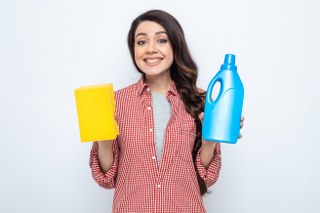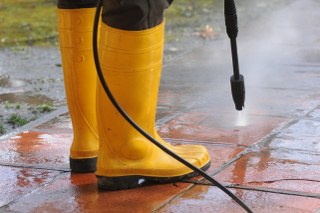Our blogs

Supplying
Find Out How Condensed Milk Is Made and Why It Works in Recipes
Condensed milk is one of those ingredients that shows up everywhere. It can be used from pies to coffee; it adds sweetness, texture, and a creamy touch. But many people still ask the same question: how is condensed milk made, and why does it work so well in recipes?
In this guide, you’ll learn:
What condensed milk is and what it’s made of.
The structure of making condensed milk at home and in factories.
The disparity between sweetened condensed milk and evaporated milk.
Why condensed milk plays a powerful role in baking and desserts.
Easy condensed milk recipes you can try and apply in your own kitchen.
By the end, you’ll know how to use this component with confidence in your own cooking.
What Is Condensed Milk
Definition of Condensed Milk
Condensed milk is merely cow’s milk with much of the water eliminated. It results in a dense, rich liquid. Sweetened condensed milk, the variety that most recipes ask for, is created when sugar is added.
What Is Condensed Milk Made Of
At its core, condensed milk is made of:
Milk: usually whole milk for a creamier texture.
Sugar: added to make sweetened condensed milk.
That’s it. No complicated ingredients. Just two simple items cooked down to create a smooth, shelf-stable product.
Common Uses of Condensed Milk
You may not realise how often condensed milk is used. It appears in:
Desserts, for example, brownies, truffles, and tarts.
Use for the foundation of no-churn ice cream.
Drinks like Vietnamese coffee or Thai chilled tea
International dishes, specifically in Asian and the cuisine of Latin America
It is popular in many kitchens since it is durable and adaptable.
How Is Condensed Milk Made
The Traditional Process
Water is extracted from ordinary cow's milk to create condensed milk. The liquid is gradually evaporated using heat until the milk thickens and becomes creamy. To preserve it and give it a rich, sweet flavour, sugar is added at this stage.
The milk is shelf-stable and simple to use in desserts thanks to this technique. The end product is flavorful, soft, and flawless.
Industrial Production vs Homemade
The equipment in industries accurately monitors the timing and humidity. This ensures that each sample is identical. Because artificial condensed milk is stored in packages, it remains safe for months.
The procedure is more individualised and slower at home. A small quantity with a homemade and natural taste can be created by heating sugar and milk on the stove. It's perfect for new recipes, but will not keep as long as the canned variety.
How to Make Condensed Milk at Home
Making your own at home is easier than most people think. You only need:
Whole milk
White sugar
A saucepan
A little patience
Cut back on the mixture by approximately half by boiling the milk and sugar. To avoid burning, stir often. Before applying, let it cool down once it's firm. Condensed milk made at home works well for pies, coffee, and easy sweets.
Sweetened Condensed Milk vs Evaporated Milk
Key Differences Between Them
Sweetened condensed milk and evaporated milk look equivalent, but are not the same.
Sweetened condensed milk: has a thicker mouthfeel and additional sugar.
Evaporated milk: is bitter and lighter in taste.
Both are made by taking out water from milk, but sugar changes the taste and use.
Can You Substitute One for the Other
In a small number of recipes, you can substitute milk for condensed milk, but not always. If you use evaporated milk instead, you can add sugar. Otherwise, the dessert will be tasteless.
For savory dishes, evaporated milk works better because it’s not sweet. For desserts, always go with sweetened condensed milk.
Why Sweetened Condensed Milk Is Popular in Recipes
A popular element in baking is sweetened condensed milk since it:
Rich taste is added without adding unnecessary sugar.
It can induce textures that are buttery and smooth.
It is suitable for desserts like whipped cream, cookies, and truffles.
This is why so many classic recipes list condensed milk as a key ingredient.
Why Condensed Milk Works in Recipes
Texture and Thickness
Recipes made with condensed milk are smooth and creamy. Pies, cheesecakes, and puddings employ it because of its thickness, which keeps them together.
Sweetness and Flavour Boost
Condensed milk gives sweetness without the need for further processing because sugar is already incorporated in it. Additionally, it adds a similar caramel flavour that enhances the richness and appeal of desserts.
Role in Baking and Desserts
In baking, condensed milk helps to keep cakes moist and also deepens the flavour. In no-bake desserts, it works as a binder that blends ingredients perfectly. That’s why so many condensed milk desserts are quick, easy, and loved by families.
Easy Recipes with Condensed Milk
Quick Desserts You Can Make
Sweetened condensed milk can be a handy ingredient for creating quick, sweet treats. You can mix it with crushed cookies to create fudge or blend it with toasted coconut to create chewy coconut bars. These condensed milk recipes can be done in a jiffy and taste just as good.
Drinks and Coffee with Condensed Milk
Sweetened condensed milk enhances the texture and flavours of both hot coffee and tea. The Vietnamese coffee and Thai tea wrapped in rich and creamy goodness show the cultural appreciation of drinks made with condensed milk.
Savory Dishes Using Condensed Milk
It’s not only for desserts. Some cooks like to add condensed milk to a curry, a sauce, or a marinade. It mellows out the spices and provides a lovely silken finish to a dish, even a savory one.
Homemade Condensed Milk Recipe
Ingredients You Need
You simply need a few ingredients to make your own homemade condensed milk:
Milk (the finest is whole milk)
For sweetness, add sugar.
An optional little pinch of baking soda (keeps it smooth)
This simple mix helps to make a fresh condensed milk recipe at home.
Step-by-Step Method
Fill the pot with the milk.
Mix vigorously after adding the sugar.
Adjust the heat and boil. Keep mixing to avoid burning.
Leave it for a while to get creamy.
That’s how to make condensed milk without any special tools.
Tips for Best Results
If you want a good-flavour milk, use full-fat milk.
Keep your homemade condensed milk in a fresh box in the refrigerator.
Use it within a week for the best taste.
With these steps, you can enjoy a fresh batch anytime without buying it.
Final Thoughts
Condensed milk is just for sweetness. It is a key component that gives sweet dishes a good taste.
It adds taste and comfort to everything from homemade condensed milk in coffee to sweetened condensed milk in pastries. It's fun and simple to make your own at home.
You only need basic milk and sugar to prepare a fresh condensed milk recipe. Along with this, it’s cost-friendly and gives you a choice over the components that are in the food you eat.
Condensed milk desserts will always have a place in the kitchen, whether you like to use it in baked goods, sweets, or beverages.
FAQs
What is condensed milk used for in baking?
In baking, condensed milk adds flavour and keeps cakes, pies, and bars moist. It also gives desserts a smooth, creamy texture.
Can you make condensed milk without sugar?
You can, indeed. Add milk and a natural sweetener, such as stevia or honey. It works for lighter dishes, but won't taste as well as sweetened condensed milk.
How long does homemade condensed milk last?
A week or so is how long freshly produced homemade condensed milk keeps in the refrigerator. It should always be kept in an airtight, clean jar.
Can I replace evaporated milk with condensed milk?
You can, however, keep in mind that condensed milk has added sugar. To balance the taste, you might need to cut back on the sugar if a recipe calls for evaporated milk.
What recipes use sweetened condensed milk?
Recipes for pies, fudge, puddings, and even beverages like Vietnamese coffee or Thai iced tea call for sweetened condensed milk.
Is condensed milk healthy?
Condensed milk is high in sugar and calories. It's okay in moderation, particularly in desserts, but if you're managing your sugar intake, don't use it every day.

Manufacturing
1 Gallon Bleach Cleaner Wholesale Bulk Bleach for Household Laundry and Industrial Cleaning
When it comes to cleaning and disinfection, bleach is one of the most trusted and effective solutions available. A 1-gallon bleach cleaner offers the perfect balance of affordability, strength, and versatility, making it an essential product for households, businesses, and industrial facilities. For wholesalers, supplying bleach in bulk ensures a steady demand from a wide range of customers, from families to commercial cleaning companies.
Why Choose 1 Gallon Bleach in Bulk?
Affordable for Wholesale & RetailPurchasing bleach in gallon sizes at wholesale rates provides cost savings for distributors, janitorial services, and retailers. It allows for reliable margins while meeting the constant need for cleaning supplies.
Multi-Purpose Cleaning PowerBleach can be used in homes, laundries, restaurants, hospitals, and factories. From brightening white clothes to sanitizing high-touch areas, one gallon of bleach serves multiple purposes.
Industrial StrengthA concentrated formula makes this bleach powerful enough for tough jobs. It’s strong enough for heavy-duty cleaning but safe when used properly in residential environments.
High Demand & Easy ResaleBecause bleach is a necessity across so many sectors, wholesalers can count on consistent demand, making it a reliable bulk product for resale.
Uses of 1 Gallon Bleach Cleaner
Home Cleaning: Disinfect bathrooms, kitchens, floors, and frequently touched surfaces.
Laundry Care: Keep whites bright, remove stubborn stains, and sanitize fabrics.
Commercial Facilities: Perfect for hotels, restaurants, and janitorial services.
Industrial Cleaning: Effective for large-scale facilities, warehouses, and factories.
Healthcare: Trusted in clinics and hospitals for sanitation and germ control.
Advantages of Buying Wholesale Bleach
Significant cost savings when purchased in bulk.
Reliable stock for businesses, distributors, and retailers.
Manufactured under strict quality standards for safety and performance.
Versatile packaging for easy storage, distribution, and resale.
FAQs – 1 Gallon Bleach Wholesale
Q1: Can this bleach be used for both laundry and surface cleaning?Yes, it is a multi-purpose solution ideal for both fabric care and hard-surface disinfection.
Q2: Is wholesale bleach safe for resale?Yes, it comes in secure gallon packaging designed for retail and distribution.
Q3: What is the shelf life of a gallon of bleach?Typically, bleach lasts 6–12 months when stored in a cool, dry place.
Q4: Is this bleach strong enough for industrial cleaning?Yes, it is formulated with industrial-grade strength, suitable for heavy-duty cleaning jobs.
Q5: Why should wholesalers consider stocking gallon bleach?Because bleach is a staple product with constant demand across households, healthcare, and commercial businesses, ensuring consistent sales and profitability.

Manufacturing
Top Chemical Companies in Delaware Leading Manufacturers and Suppliers
Delaware may be a small state, but it plays a major role in the U.S. chemical industry. Home to some of the most innovative and historic chemical companies in the country, Delaware is a hub for chemical manufacturing, R&D, and industrial supply. Whether you're searching for chemical manufacturers in Delaware or looking for bulk chemical suppliers near me, this guide will help you discover the top players in the region.
Why Delaware Is a Hub for Chemical Companies
Delaware’s business-friendly environment, skilled workforce, and strategic East Coast location make it ideal for chemical production and distribution. Many chemical companies in Delaware are involved in advanced research, specialty chemicals, and industrial applications, serving sectors such as pharmaceuticals, agriculture, electronics, and construction.
Top Chemical Companies in Delaware
1. DuPont
Headquartered in Wilmington, DuPont is one of the most recognized names in global chemistry. Founded in 1802, it has been a pioneer in material science, electronics, and biotechnology.
Known For: Specialty chemicals, advanced materials, crop protection.
Why It Matters: A trusted name for businesses looking for innovative, high-performance chemical solutions.
2. Chemours Company
A spinoff of DuPont, Chemours is also based in Wilmington and specializes in performance chemicals.
Key Products: Titanium technologies, fluoroproducts, chemical solutions.
Industries Served: Automotive, coatings, refrigeration, and electronics.
3. Ashland Inc.
Ashland operates in Newark, Delaware, and is known for its focus on specialty chemical companies and sustainable solutions.
Core Areas: Life sciences, personal care, industrial applications.
Note: Ideal for companies looking for eco-friendly and advanced chemical formulations.
4. Air Liquide USA
Although not headquartered in Delaware, Air Liquide has a major presence in the state and provides industrial gases and services to many regional facilities.
Specialization: Gas-based chemicals, cryogenics, and medical-grade gases.
Used By: Laboratories, manufacturers, and pharmaceutical companies.
Related Services & Suppliers
Aside from the big names, there are numerous industrial chemical suppliers and bulk chemical distributors across Delaware that cater to small businesses, laboratories, and manufacturers. These include:
Local chemical plants in Delaware offering custom formulations.
Bulk chemical suppliers near me that provide delivery and logistics support.
Chemical supply companies offering reagents, acids, solvents, and cleaning compounds.
Common Uses of Delaware-Sourced Chemicals
Businesses in Delaware and neighboring states rely on local chemical companies for:
Pharmaceutical production
Electronics manufacturing
Water treatment solutions
Agriculture and fertilizer compounds
Food processing and packaging
How to Choose a Chemical Supplier in Delaware
When selecting a chemical manufacturer in Delaware, consider the following:
Product variety and purity levels
Certifications and safety standards
Delivery timelines and logistics
Customer support and technical assistance
Custom blending or formulation services
Final Thoughts
Whether you're a business in need of industrial chemicals, a lab searching for specialty reagents, or a contractor looking for bulk chemical suppliers near me, Delaware has a wide range of trusted companies to meet your needs. From giants like DuPont to niche specialty firms, the state continues to lead the way in American chemical innovation.

Supplying
Who Are the Top Food Suppliers and Most Profitable Food Beverage Companies in the World
Looking for the best food suppliers in the USA or want to know which food and beverage companies dominate the global market? From everyday grocery brands to international exporters, the food industry is driven by powerful names delivering everything from fresh produce to processed snacks. Whether you’re a restaurant owner, a retailer, or a curious consumer, understanding who leads the food world—both in profit and supply—can help you make smarter choices. One standout in the U.S. market is LionsSG, a top-tier food supplier and import/export specialist serving businesses nationwide.
Which Global Food & Beverage Companies Are the Most Profitable?
Some global food giants have built household brands that reach nearly every corner of the world. These are the names you see on your grocery shelves, vending machines, and even in restaurants.
Here are a few of the most profitable food companies globally:
Nestlé – A Swiss multinational known for baby food, dairy, coffee, and cereals.
PepsiCo – Famous for snacks like Doritos, Lay’s, and drinks like Pepsi and Gatorade.
Coca-Cola – With beverages spanning sodas, teas, and juices, Coca-Cola is a global drink leader.
Unilever – Their food division includes spreads, dressings, and ice cream brands.
JBS – A Brazilian company and one of the largest meat producers worldwide.
These corporations play a huge role in shaping how food is produced, marketed, and distributed across the globe.
Who Are the Top Food Suppliers in the USA?
While global giants manage branding and product development, food suppliers are the backbone of getting those products to shelves and tables.
One highly regarded name in the U.S. food supply chain is LionsSG.
LionsSG stands out as a top-tier food supplier in the USA, trusted by businesses for:
Bulk product sourcing
Reliable food import/export
Customized supply chain solutions
Warehousing and delivery services
Whether you're running a restaurant, retail store, or hospitality business, LionsSG ensures you get the food products you need—on time and with full transparency.
Why Are Import & Export Services Crucial in the Food Industry?
In today’s global economy, the food supply chain stretches across continents. From exotic fruits to specialty spices, import/export services keep the variety flowing.
Companies like LionsSG manage the complexity behind:
Customs clearance
Packaging and labeling regulations
Timely delivery of perishable goods
Supplier verification and quality checks
Having a trusted import/export partner reduces costs, ensures compliance, and keeps operations smooth.
FAQs: Food & Beverage Supply Chain
Q1: What is the role of a food supplier?A food supplier sources, stores, and delivers food products to businesses like restaurants, grocery stores, and food service companies.
Q2: Why is LionsSG considered a top food supplier in the USA?Because of its reliable service, strong import/export network, and ability to offer customized solutions for sourcing and logistics. LionsSG supports both small and large businesses across the U.S.
Q3: What are the benefits of working with an import/export food service?You get access to international markets, better pricing options, and assurance that your products meet regulatory and safety standards.
Q4: Which companies are the most profitable in the global food sector?Nestlé, PepsiCo, Coca-Cola, JBS, and Unilever are among the most profitable and influential food and beverage firms worldwide.
Q5: Can LionsSG handle large-scale food imports?Yes, LionsSG specializes in both small-scale and bulk imports, with full support for sourcing, logistics, and compliance.

Supplying
Your Go To Wholesale Food Supplier for Restaurants Retailers
In the fast-paced world of food service and retail, having a dependable wholesale food supplier can make all the difference. Whether you run a busy restaurant, manage a chain of grocery stores, or operate a catering business, sourcing high-quality food products at competitive prices is essential. That’s where a trusted wholesale food supplier steps in — ensuring you never run out of stock and always serve freshness.
What Is a Wholesale Food Supplier?
A wholesale food supplier is a company that purchases food products in large quantities directly from manufacturers, farmers, or producers, and sells them in bulk to businesses like restaurants, cafés, supermarkets, hotels, and convenience stores. Their role is crucial in streamlining the supply chain and delivering consistent quality at a lower cost.
Why Choose a Reliable Wholesale Food Supplier?
Choosing the right supplier helps reduce costs, ensures consistent product quality, and boosts operational efficiency. Here’s why smart businesses choose a reliable wholesale partner:
1. Bulk Purchasing Power
Buying in bulk from a wholesale supplier means lower per-unit costs. This allows restaurants and retailers to maximize profit margins while maintaining competitive pricing for customers.
2. Fresh and Consistent Inventory
Top suppliers have strong logistics systems and established networks, ensuring timely delivery and consistent product quality. They understand that freshness isn’t optional — it’s everything.
3. Wide Product Selection
A reputable food supplier offers a diverse range of products:
· Fresh fruits and vegetables
· Frozen and refrigerated items
· Meats, poultry, and seafood
· Canned goods and dry foods
· Dairy products
· Baking and cooking ingredients
· Organic and specialty items
Having a one-stop solution reduces the hassle of dealing with multiple vendors.
4. Customized Solutions for Different Businesses
Every business has different needs. The right supplier provides custom solutions — whether you're a fine-dining restaurant requiring high-grade meats or a retailer looking for snack and packaged food inventory.
Key Qualities to Look for in a Wholesale Food Supplier
Here are the must-have traits of a top-tier food distributor:
· Food safety certifications and compliance
· Transparent pricing with no hidden costs
· Efficient logistics and delivery options
· Flexible order quantities
· Strong customer support
· Inventory management assistance
Who Benefits from Wholesale Food Supply?
A wide range of businesses can benefit from wholesale partnerships, including:
· Restaurants & Cafés: Ensure a steady supply of fresh ingredients and reduce last-minute inventory issues.
· Hotels & Resorts: Provide premium dining experiences by sourcing quality products in bulk.
· Retail Stores & Supermarkets: Keep your shelves stocked with top-selling grocery items.
· Caterers & Event Planners: Stay prepared for large events with cost-effective ingredient sourcing.
· Food Trucks & Bakeries: Maintain daily operations without worrying about supply interruptions.
Supporting Local and Global Supply Chains
Modern suppliers understand the value of variety. Some focus on locally sourced produce, while others offer imported global goods — giving restaurants and retailers access to international flavors and premium specialties.
Sustainability and Responsibility
Many top suppliers are now embracing sustainable practices:
· Reducing packaging waste
· Offering eco-friendly delivery options
· Supporting ethical sourcing from farms and fisheries
· Reducing carbon footprints through smarter logistics
Choosing a responsible food supplier helps your brand align with growing consumer demand for eco-conscious practices.
Final Thoughts
When it comes to operating a successful food business, your supply chain is the backbone. Partnering with a reliable wholesale food supplier ensures you always have the products you need, at the quality you expect, and the price that keeps you profitable.
Whether you’re a restaurant looking for fresh produce and premium meats or a retailer seeking to expand your grocery inventory, the right supplier becomes your silent business partner — powering your growth from the back end.
Make the smart choice. Partner with a wholesale food supplier who understands your business needs and delivers more than just food — they deliver reliability, consistency, and quality.

Import & Export
Top Import Export Company in USA
In today’s global economy, businesses rely on trusted partners to move products across borders efficiently and safely. If you're looking for a reliable import export company, you're in the right place. Whether you're a small business looking to expand internationally or a large distributor searching for reliable trade logistics, working with the right import export company in USA is essential.
A Guide to Import and Export in the USA: Read more
Let’s explore what makes a company top-tier, what services they offer, and how to find the best partner for your business.
What Is an Import Export Company?
An import export company specializes in helping businesses buy goods from other countries (importing) and sell products to international markets (exporting). These companies handle the entire trade cycle, including:
Sourcing and procurement
Shipping and freight forwarding
Customs clearance
Compliance with international laws
Warehousing and distribution
The goal is to make global trade smooth, cost-effective, and compliant with regulations.
Why Work With an Import Export Company in USA?
Choosing an import export company in USA offers several advantages:
Global reach with local expertise
Familiarity with U.S. trade laws and customs processes
Stronger shipping networks and freight options
Access to large supply chains for sourcing and exporting
Top-rated companies also provide consulting to help you identify profitable markets, find buyers, or source products with the best margins.
Import Export Company List – Top-Ranked in the USA
Here is a general import export company list based on industry presence and client reviews:
Cargill International
Lions Sales Group
UPS Supply Chain Solutions
BDP International
Flexport
Global Trading Solutions
Expeditors International
CH Robinson Global Forwarding
Ecom World Trading
Maersk Customs Services USA
These companies are known for their strong logistics networks, customs brokerage, and end-to-end trade support. Some specialize in specific industries like agriculture, chemicals, electronics, or general merchandise.
What to Look For on an Import Export Company Website
A well-designed import export company website gives you insight into their capabilities, experience, and reliability. Here’s what to check:
Company background and years in business
Countries they trade with
Product categories they specialize in
Certifications and compliance
Customer reviews or case studies
Contact form or quote request option
An optimized website builds trust and helps potential clients understand the scope of services offered.
How to Choose the Right Import Export Company for Your Business
Finding the best import export company in USA depends on your business needs. Ask these questions:
Do they specialize in your product category?
Can they handle both importing and exporting?
Do they provide real-time shipping and tracking?
Are they compliant with international laws and certifications?
Can they offer volume discounts or custom brokerage?
You can start by browsing an import export company list online or reaching out to a local trade chamber for verified companies.
Benefits of Partnering with a US-Based Import Export Company
Speed: Faster customs clearance and delivery times.
Accountability: Legal protection under U.S. laws.
Professional Support: Bilingual staff, international trade consultants, and detailed documentation processes.
Market Knowledge: Insights into global demand trends and pricing strategies.
Final Thoughts
Partnering with the right import export company is critical to expanding your global business. From sourcing products to shipping internationally, a top-rated import export company in USA can help you navigate every step of the process.
Explore a trusted import export company list, review their import export company website, and reach out to a team that understands your business goals and trade requirements.
Global trade is complex, but with the right partner, it becomes a seamless opportunity.

Supplying
How Do Grocery Stores Find Suppliers A Simple Guide for the US Market
Running a grocery store in the U.S. takes more than stocking shelves—it starts with finding the right suppliers. If you’ve ever wondered, “How do grocery stores find suppliers?”, you’re not alone. The process may seem complex, but it can be broken down into simple, understandable steps.
In this article, we’ll explain how U.S. grocery stores connect with suppliers and build long-term partnerships to keep their shelves full and customers happy.
1. Understanding What a Grocery Supplier Is
Before finding suppliers, store owners need to know what kind of supplier they’re looking for. A grocery store supplier is a business that provides products like fresh produce, dairy, frozen foods, snacks, household items, and more. These suppliers can be:
· Wholesalers
· Local farmers and producers
· Food distributors
· Import/export companies
· Manufacturers directly
2. How Do Grocery Stores Find Suppliers?
Here are the most common ways grocery stores in the USA find suppliers:
A. Wholesale Markets and Food Distribution Companies
Grocery stores often work with large wholesale companies like UNFI, Sysco, or KeHE. These companies offer a wide range of products and deliver regularly. It’s convenient and efficient, especially for stores looking to stock hundreds of items.
B. Trade Shows and Food Expos
Events like the Fancy Food Show or the NGA Show are great for finding new suppliers. Store owners meet producers, explore product samples, and compare prices and terms. These shows help build direct relationships with grocery suppliers in the USA.
C. Online B2B Marketplaces
Today, many grocery stores search online for suppliers. Websites like RangeMe, Alibaba, or Faire let stores browse supplier catalogs, request samples, and compare pricing from the comfort of their office.
D. Local Farmers and Producers
Many independent or organic grocery stores partner with local suppliers to offer fresh, regional products. This not only supports the local economy but also attracts customers looking for farm-fresh goods.
E. Retail Co-Ops and Buying Groups
Smaller stores often join retail co-ops or buying groups to increase their purchasing power. This gives them access to national suppliers and better pricing—similar to what larger chain stores get.
F. Cold Outreach and Referrals
Sometimes, grocery store managers reach out directly to brands they want on their shelves. They might find supplier contact information online, through LinkedIn, or by asking for referrals from other businesses.
3. What Grocery Stores Look for in a Supplier
When choosing suppliers, grocery store owners and managers in the U.S. consider:
· Product quality and freshness
· Delivery reliability
· Pricing and payment terms
· Product variety
· Certifications (like USDA Organic, FDA-approved)
· Customer service and communication
Building trust is key. Many stores prefer long-term partnerships where the supplier understands their needs and delivers consistently.
4. Challenges in Finding Grocery Suppliers
While there are many options, grocery stores often face these challenges:
· Supply chain disruptions (like during COVID-19)
· Fluctuating prices for certain goods
· Limited availability of specialty or organic products
· Minimum order quantities from wholesale suppliers
That’s why many grocery stores use a mix of local and national suppliers to reduce risk and maintain a steady inventory.
5. The Role of Technology in Supplier Discovery
Modern tools like inventory software and AI-powered sourcing platforms help streamline the process. These tools can suggest suppliers based on product needs, price trends, and regional availability.
Thanks to NLP (natural language processing) and machine learning, grocery store owners can now analyze supplier reviews, automate reorder processes, and predict demand more accurately.
Final Thoughts
So, how do grocery stores find suppliers? They combine traditional methods like trade shows and personal referrals with modern tools like online platforms and supply chain software. The goal is always the same—keep shelves stocked with fresh, affordable products that customers want.
If you’re planning to open a grocery store in the U.S., focus on building strong supplier relationships. It’s the foundation of a successful retail business.

Supplying
What Cleaning Supplies Are Needed in a House A Complete Checklist
Keeping your home clean and tidy isn’t just about aesthetics—it’s essential for health, hygiene, and peace of mind. Whether you're setting up a new home or restocking your storage closet, knowing what cleaning supplies are needed in a house will help you maintain cleanliness efficiently and avoid last-minute store runs.
In this guide, we’ll walk through the essential cleaning items, the best cleaning tools for home, and even some tips on choosing eco-friendly cleaning supplies.
Essential Household Cleaning Supplies: The Basics
Here are the must-have cleaning products for home that every household should have on hand:
1. Multi-Surface Cleaner
A good all-purpose cleaner is perfect for countertops, appliances, and bathroom surfaces. Choose one that disinfects and cuts through grease.
2. Glass Cleaner
For streak-free mirrors and windows, a quality glass cleaner is a must. You can also use a vinegar-water solution as a natural alternative.
3. Disinfectant Spray or Wipes
Use these on high-touch surfaces like doorknobs, light switches, and remotes. These are vital for minimizing germs, especially during cold and flu season.
4. Toilet Bowl Cleaner
A strong toilet cleaner paired with a good toilet brush helps keep your bathroom sanitary and fresh.
5. Floor Cleaner
Depending on your floor type (tile, hardwood, laminate), get a cleaner designed for it. Consider eco-friendly cleaning supplies to avoid harmful chemicals.
6. Dish Soap
Not just for dishes—dish soap can also be used for spot cleaning fabric, tools, and more.
Best Cleaning Tools for Home
No home cleaning checklist is complete without reliable tools. Here are the essentials:
Microfiber Cloths – Gentle, reusable, and perfect for dusting and wiping
Sponges & Scrub Brushes – For tougher grime on sinks, bathrooms, and stovetops
Vacuum Cleaner – Crucial for carpets, rugs, and even bare floors
Broom & Dustpan – For quick pickups and daily sweeping
Mop (Spray or Traditional) – Keeps floors looking fresh and clean
Bucket – Useful for mopping and carrying supplies
Toilet Brush – A must-have tool for keeping toilets clean
Rubber Gloves – Protect your hands from chemicals and bacteria
Specialty Cleaning Products for Home
Depending on your household needs, you may also want to stock:
Lime scale remover – For hard water stains
Wood polish – To protect and shine wood furniture
Carpet stain remover – Especially useful for homes with kids or pets
Oven cleaner – Tackle baked-on grease easily
Laundry stain remover – Handle tough fabric spots and odors
Eco-Friendly Cleaning Supplies: A Healthier Option
If you're looking to reduce your environmental impact or limit exposure to harsh chemicals, opt for eco-friendly cleaning supplies. These include:
Biodegradable, plant-based cleaners
Vinegar and baking soda combos
Reusable microfiber cloths instead of paper towels
Refillable spray bottles to reduce plastic waste
These sustainable choices help protect both your family and the environment.
Home Cleaning Checklist: What to Clean and How Often
Here's a basic frequency-based home cleaning checklist:
Daily:
Dishes
Kitchen countertops
Bathroom surfaces
High-touch areas (light switches, handles)
Weekly:
Vacuum/sweep floors
Mop floors
Clean mirrors and glass
Change bed linens
Scrub sinks, tubs, and toilets
Monthly:
Clean appliances (oven, microwave, fridge)
Dust ceiling fans and baseboards
Wash windows
Seasonally:
Deep clean carpets
Organize storage spaces
Clean behind and under furniture
Final Thoughts
Having the right household cleaning supplies makes it easier to stay organized, healthy, and stress-free. Whether you prefer store-bought products or DIY mixtures, building your cleaning kit with the essential cleaning items will save you time and effort in the long run.
From eco-friendly cleaning supplies to the best cleaning tools for home, start building your ideal cleaning arsenal today—and enjoy a spotless, comfortable living space.

Manufacturing
What Can I Mix With Bleach to Make It Stronger for Pressure Washers
Bleach is one of the most powerful and cost-effective cleaning agents available, widely used across residential, commercial, and industrial cleaning tasks. Whether you're a homeowner pressure washing your driveway or a professional cleaning contractor handling large-scale surfaces, understanding how to properly enhance bleach for stronger cleaning performance is essential.
At Lions Sales Group, a trusted bleach manufacturer and supplier, we are committed to helping our clients maximize the cleaning power of our sodium hypochlorite solutions while promoting safe handling practices.
Understanding Industrial Bleach for Pressure Washing
Industrial-grade bleach, also known as a sodium hypochlorite solution, is a common ingredient in pressure washer cleaning solutions. It effectively breaks down tough grime, mold, mildew, algae, and organic stains on concrete, vinyl siding, wood, and other exterior surfaces. However, bleach by itself may not be sufficient for deep or heavily embedded dirt. That’s where specific additives come into play—designed to enhance bleach’s effectiveness without compromising safety.
Safe Additives to Mix With Bleach for Better Cleaning Results
If you're looking to make bleach stronger for pressure washing applications, you must stick to safe, compatible substances. Here's what you can mix with bleach to improve its cleaning performance:
1. Water – The Essential Base
Bleach should always be diluted before use in a pressure washer. A common and effective ratio is one part bleach to three or four parts water. This not only protects the surface being cleaned but also helps extend the life of your pressure washing equipment.
At Lions Sales Group, we recommend this dilution ratio for most outdoor cleaning jobs. Using bleach at full strength is not only unnecessary, but it can also damage your equipment and surface materials.
2. Dish Soap (Without Ammonia)
Adding a few drops of ammonia-free dish soap helps bleach stick to surfaces longer. This increases dwell time, allowing the bleach to penetrate and clean more effectively. Be sure to use only soaps that do not contain ammonia, as combining bleach and ammonia creates highly toxic fumes.
This is a popular solution for residential use, especially when washing fences, decks, or vinyl siding.
3. Professional Surfactants or Bleach-Stable Detergents
Professional cleaning contractors often use surfactants specially formulated to be mixed with sodium hypochlorite. These bleach-compatible detergents help reduce surface tension and allow bleach to spread evenly across large areas. This is particularly helpful in commercial cleaning and bulk bleach applications.
As a bulk bleach supplier, Lions Sales Group recommends surfactants for clients who need efficient, large-scale cleaning.
4. Trisodium Phosphate (TSP) – Use With Caution
In heavy-duty cleaning jobs, especially in industrial environments, TSP can be added in small amounts to a bleach solution. TSP helps break down stubborn dirt and grease and boosts overall cleaning performance. However, TSP must be handled carefully and used in moderation—typically one cup per gallon of bleach solution.
Always follow safety protocols and local regulations when using TSP in combination with industrial bleach.
Dangerous Combinations to Avoid
As a responsible bleach manufacturer, Lions Sales Group strongly advises against mixing bleach with the following substances, as they create hazardous chemical reactions:
Ammonia
Vinegar or other acids
Alcohol
Unknown household cleaners
These combinations can produce harmful gases such as chlorine or chloramine, which are dangerous to your health.
Equipment Safety Tips for Pressure Washing with Bleach
Use bleach-compatible hoses, nozzles, and tanks
Always flush the system with clean water after using a bleach solution
Never allow bleach to dry on a surface—rinse within a few minutes
Store bulk bleach containers in a cool, shaded, and secure area
Ensure proper PPE (gloves, goggles) is used by all operators
Why Choose Lions Sales Group as Your Bleach Supplier?
When you purchase bleach for pressure washing, the quality of the product directly affects the results. Low-quality or improperly stored bleach loses potency quickly. At Lions Sales Group, we manufacture and supply high-quality industrial bleach and sodium hypochlorite solutions for a wide range of applications including pressure washing, sanitation, food processing, and water treatment.
We offer:
High-purity bleach with consistent sodium hypochlorite concentration
Safe packaging for transport and storage
Competitive bulk bleach pricing
Reliable shipping and supply chain support
Ongoing customer support for usage, safety, and application
Frequently Asked Questions (FAQs)
1. Can I mix vinegar with bleach to boost cleaning power?No. Mixing vinegar (an acid) with bleach creates chlorine gas, which is highly toxic. Never mix bleach with vinegar or any acidic substances.
2. What kind of bleach does Lions Sales Group provide?We manufacture and supply industrial-grade sodium hypochlorite bleach for cleaning, sanitation, and industrial applications. Our bleach is ideal for pressure washing, water treatment, and general disinfection.
3. How should I dilute bleach for use in a pressure washer?A standard dilution is 1 part bleach to 3 or 4 parts water. For lighter jobs, you may use more water. Always test on a small area before full application.
4. Is Lions Sales Group bleach compatible with surfactants?Yes, our bleach can be safely mixed with bleach-compatible surfactants or pressure washer detergents. This helps improve performance and coverage.
5. Can I buy bleach in bulk for commercial use?Absolutely. Lions Sales Group offers bulk bleach solutions for commercial and industrial clients. We can ship large volumes and accommodate recurring supply needs.
6. How do I store bleach safely?Store in a cool, dry, and well-ventilated area away from direct sunlight and incompatible chemicals. Keep containers tightly sealed and labeled.
7. Does bleach expire or lose effectiveness over time?Yes. Over time, sodium hypochlorite breaks down, especially when exposed to heat or light. Use it within the recommended shelf life and store it properly to maintain potency.
For inquiries, custom orders, or safety data sheets, contact Lions Sales Group—your reliable partner for high-quality bleach and chemical solutions.

Supplying
Wholesale Food Distribution Simplifying Your Food Beverage Supply Chain
In today’s fast-paced foodservice and retail world, having a dependable wholesale food distributor is key to keeping shelves and kitchens stocked, costs down, and customers happy. Whether you operate a restaurant, café, grocery store, or catering business, here’s what you need to know to streamline your food and beverage sourcing.
What a Wholesale Food Distributor Does
A wholesale food distributor buys products in large quantities—from fresh produce and meats to dairy, dry goods, and beverages—and delivers them to your business on a regular schedule. They handle:
Sourcing & Purchasing
Temperature-Controlled Storage
Order Processing & Packing
Scheduled Deliveries
Quality and Safety Checks
By managing the logistics, they let you focus on cooking, selling, and serving.
Core Services You’ll Rely On
Broad Product SelectionGet everything you need—fresh fruits and vegetables, proteins, dairy, grains and spices, plus a full range of beverages—all from one supplier.
Cold Chain ManagementFrom warehouse to your door, temperature control keeps perishable items fresh and safe.
Easy Online OrderingPlace orders, track shipments, and view invoices through a user-friendly web portal or mobile app.
Custom Delivery OptionsChoose regular routes, just-in-time drop-offs, or special multi-stop runs to fit your schedule.
Additional SupportNeed bulk packs, private labeling, or meal-kit assembly? These extra services are often available to save you time and labor.
Benefits of Working with a Single Distributor
Lower CostsBuying in bulk and consolidating vendors can reduce what you pay per item.
Less WasteReliable forecasting and controlled storage help cut down on spoiled goods.
Streamlined OperationsOne point of contact handles all sourcing, storage, and delivery—so your team can focus on customers.
Regulatory ConfidenceDistributors stay up to date on safety rules and handle proper labeling, so you meet health standards effortlessly.
ScalabilityWhether you’re stepping up for a busy weekend or expanding to new locations, your distributor can adjust to your needs.
Choosing the Right Partner
When looking for a distributor, pay attention to:
Product Quality & Variety
Delivery Reliability
Inventory Visibility (online access to real-time stock levels)
Cold Storage Capabilities
Food Safety Certifications
Responsive Customer Service
Visiting their warehouse and speaking with current clients can give you valuable insight.
Why Our Food & Beverage Supply Chain Service Stands Out
Nationwide Network of cold storage facilities
24/7 Ordering Portal for last-minute needs
Flexible Pricing & Payment Plans
Dedicated Account Manager to tailor solutions to your menu
Eco-Friendly Packaging Options
We make sure you get the right products, right when you need them, without hassle.
Get Started Today
Let us handle your sourcing and logistics so you can focus on creating great food and happy customers. Reach out for a free quote or consultation:
Call: 786-418-9852
Email: info@lionssg.com
Visit: lionssg.com
Partner with us to turn your supply chain into a competitive advantage.
